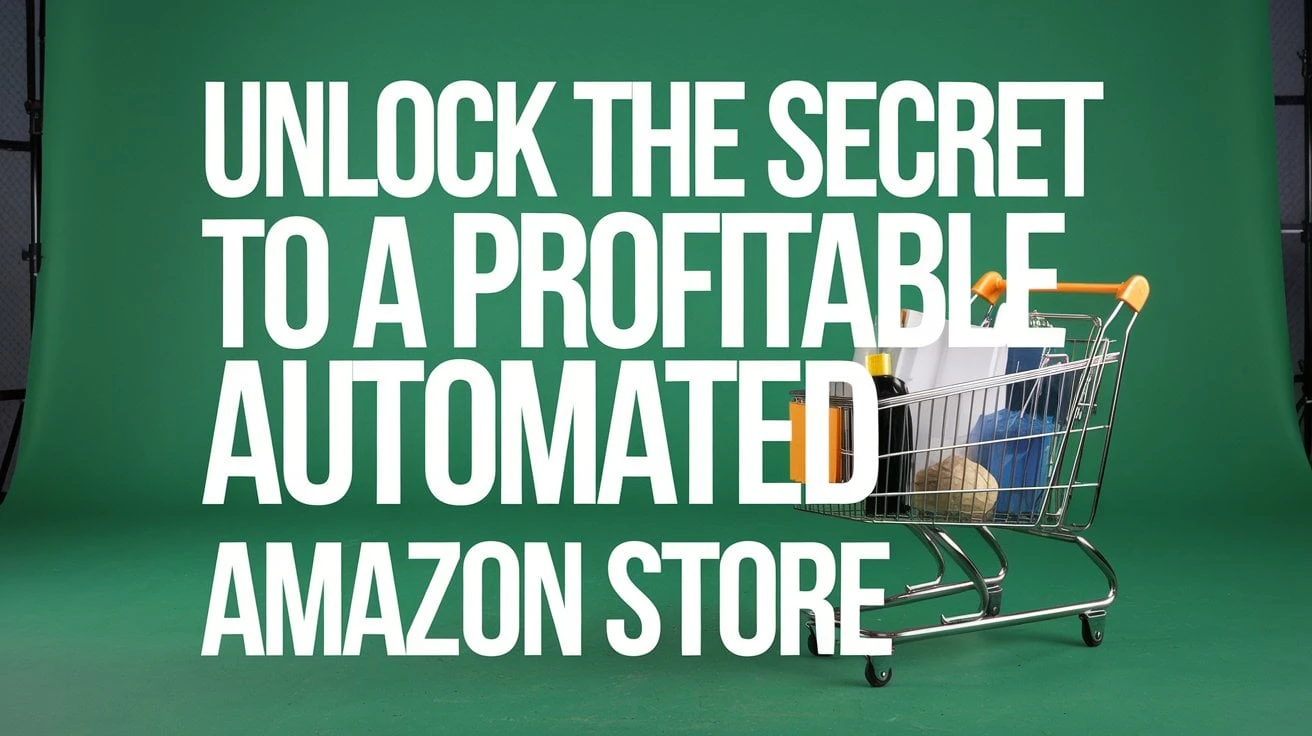Article Summary (TL;DR)
✅ Understand the importance of backend keywords in Amazon product listings for improving search visibility and ranking.
✅ Learn about tools and resources available to help optimize backend keywords, such as Amazon keyword research tools and competitor analysis.
✅ Explore strategies for selecting and implementing effective backend keywords, including thorough research, relevance, and strategic placement.
Amazon is considered the largest e-commerce platform in the world. Its success is fueled by the ability of its sellers to maximize their exposure and sales on the site.
One of the most efficient methods to doing this is by strategically using backend keywords, which are words and phrases added to an Amazon product listing to help drive traffic and sales.
But what exactly are Amazon backend keywords (or backend keywords Amazon), and how can you leverage them?
This article will explore the importance of Amazon backend keywords, their benefits, and how to find the right ones for your listings.

What are Backend Keywords Amazon?

Amazon backend keywords are words and phrases that describe an item and are not visible to the customer. These keywords are indexed by Amazon’s search engine, which is used to help customers locate the products they’re looking for.
Adding the right keywords to your product listing can increase potential customers’ chances of seeing your product.
When you create a product listing on Amazon, you’re given the option to add backend keywords. These keywords should be related to the product and should be used to describe the item in more detail.
For example, if you are selling a laptop, you could use keywords such as “laptop,” “computer,” “notebook,” and “PC.” These keywords will help Amazon’s search engine index your product and display it to customers searching for a laptop.
You can optimize keywords in your product listings and bullet points. But here’s how to add keywords in the backend.
Step 1: Log into Seller Central.
Step 2: Access the inventory page and manage inventory.

Step 3: Click on edit on a product you want to work on.

Step 4: You’ll be brought to the product page, where you can edit vital info, variations, compliance, keywords, etc. Click the keyword

Step 5: Input your keywords here.

Step 6: Click on save, which should update your backend keywords.
The Benefits of Utilizing Amazon Backend Keywords
Using the right backend keywords in your product listing can be beneficial in several ways.
First, the right keywords help increase your product visibility and chances of being seen by potential customers, which can likely lead to increased sales and more exposure for your product.
Second, using the right keywords can also help to improve your product ranking on Amazon. Amazon uses an algorithm to determine the ranking of products on its search engine.
Using relevant keywords in your product listing can improve your ranking and increase your product’s chances of being seen by customers.
Finally, using the right keywords can also help to improve your product’s conversion rate. When customers see your product, they are more likely to click on it and purchase it if it is accurately described using the right keywords.
This can lead to increased sales and more revenue for your business.
How to Find Backend Keywords on Amazon
Now that you know what backend keywords are and their benefits, you may wonder how to find the correct keywords for your product listing.
There are multiple ways to do this, including using Amazon’s auto-fill feature, researching competitor listings, and using keyword research tools.
The first step is to use Amazon’s auto-fill feature. When you begin typing in a keyword, Amazon automatically suggests related keywords. This can be an awesome way to find relevant keywords for your product and help drive traffic and sales.
The second step is to research competitor listings. Look at the listings of other sellers selling similar products and see what keywords they are using.
In our own Amazon product listings, we use a tool called ZonGuru. We can input the ASIN of competitors, and the tool will pull all their top-ranking keywords on one page.

This can give you an idea of what keywords are working for them and which ones you should use in your listing.
Finally, keyword research tools can help locate the right keywords for your product listing. Several keyword tools are available online that can help you find the most relevant keywords for your product.
Our team uses Mangools keyword tools and Ahrefs to find relevant keywords not just on our listings but also for our blog posts and e-commerce pages.

These keyword tools often provide additional features such as Amazon search term report, keywords tab, backend search terms, Amazon brand analytics, valuable keywords, product title bullet points, Amazon keyword optimization, and more.
These tools can help you narrow your search and locate the best keywords for your listing.
How to Find the Correct Amazon Backend Keywords for Your Listing
Now that you’ve learned how to find backend keywords, you may wonder how to find the right backend keywords for your product listing.
The goal is to find relevant keywords for your product, which will help increase your product’s visibility and sales. Here’re a handful of tips to help you find the right keywords for your listing:
- Use long-tail keywords. Long-tail keywords are more specific and are more likely to be searched by potential customers.
- Use keywords that describe your product in detail. This will help to ensure that your product is accurately and effectively described in the listing.
- Use keywords that are related to your target audience. This will ensure that your product is seen by potential customers who are likely to be interested in it.
- Use keywords that are not too competitive. Competitive keywords are used by many other sellers, making it more difficult for your product to be seen.
The Amazon Backend Keywords Limit
It’s important to note that Amazon limits the number of backend keywords used in a product listing, and the limit is 250 characters, including spaces.

Keep this in mind when selecting backend keywords for your product listing, as adding too many can lead to your listing being rejected by Amazon.
How Do I Discover the Right Keywords for Backend Implementation?
When selecting the right keywords for your product listing, keeping a few things in mind is important.
First, you want to ensure that your selected keywords are relevant to your product and accurately describe it.
Second, you want to ensure that the keywords you select are not too competitive, as this can make it more difficult for your product to be seen.
Finally, you must ensure you are within the Amazon backend keywords limit.
Tips for Writing Effective Amazon Backend Keywords
Now that you’ve learned how to discover the perfect keywords for your product listing, here are a few tips to help you write effective Amazon backend keywords:
- Use keywords that are pertinent to your product and accurately describe it.
- Keep your keywords concise and to the point.
- Avoid using words that are too general or common. (not sure about this)
- Avoid using words that are too similar to each other. (not sure about this)
- Use keywords that are not too competitive.
Amazon Ranking and Indexing Explained
Now that you’ve learned how to discover the perfect keywords for your product listing, you may wonder how Amazon’s ranking and indexing system works.
Amazon’s ranking system is based on several factors, including the relevance of the keywords in your product listing, the product’s sales performance, and customer reviews.
Amazon’s indexing system uses the keywords in your product listing to determine which products to show customers searching for a particular item.
How Do You Know if a Backend Keyword is Indexed?
You can use Amazon’s search engine to determine if a keyword is indexed. If you search for a keyword and your product appears in the search results, then the keyword is indexed and used by Amazon’s search engine.
However, if your product doesn’t appear in the search results, then the keyword is not indexed or used by Amazon’s search platform.
What are Amazon Keywords?
Amazon keywords are words and phrases you can add to your product listing to help it appear in more searches and help your target audience find you.
These important keywords are not visible to customers, but they can help improve the visibility and ranking of your product. Amazon keywords include both front-end and backend keywords.
Front-end keywords are words and phrases that customers can see in your product listing or product title. These are the words and phrases that customers use to find your product.
Backend keywords are words and phrases that customers cannot see in your product listing. You can add these words and phrases to your listing to help it appear in more searches.
What is Front End and Backend in Amazon?
Front end and backend are terms used to refer to two different aspects of the Amazon search engine.
The front end refers to the words and phrases that customers can see in your product listing. Customers use these words and phrases to find your product on Amazon.
Backend refers to the words and phrases customers cannot see in your listing. You can add these words and phrases to your listing to help it appear in more searches.
Final Words
Amazon backend keywords are an integral part of optimizing your product listing on Amazon. You can increase your product’s visibility, ranking, and sales by using the optimal keywords.
To find the correct keywords for your product listing, you can use Amazon’s auto-fill feature, research competitor listings, and use keyword performance research tools.
Additionally, it would help if you kept the Amazon backend keywords limit in mind, used keywords relevant to your product, and accurately described it.
Using the tips and information in this blog post, you can unlock the power of Amazon backend keywords and maximize your product’s exposure and sales.
Comments
2 responses to “Backend Keywords Amazon”
-
Can you use someone’s Registered Trademark as a keyword on Amazon.
-
Can you use someone’s Registered Trademark as a keyword on Amazon.
And can you use Any of Amazon’s Trademarks as a keyword on Amazon or anywhere else.
Related Posts

10 Profitable Product Categories for Amazon Affiliates 2025
What you’ll learn Amazon is a favorite for experienced and…

Unlock the Secret to a Profitable Automated Amazon Store: How to Build a Hands-Free Income Stream
Ever dreamed of running a profitable Amazon business while sipping…

Master Amazon New Restricted Keywords: A Seller’s Guide to Success
Changes to Amazon’s restricted keywords list have taken a lot…







Leave a Reply